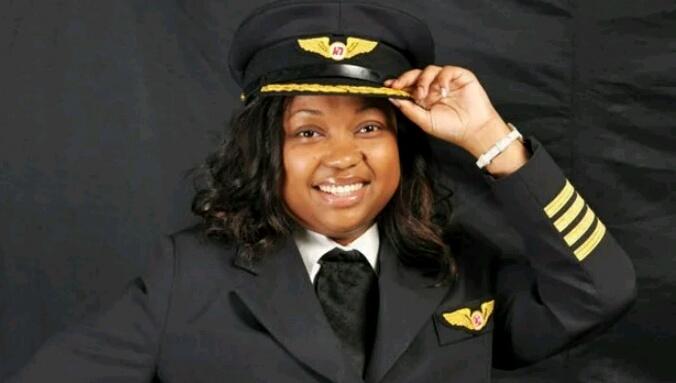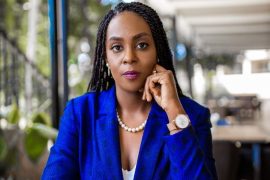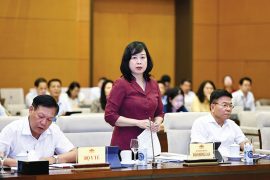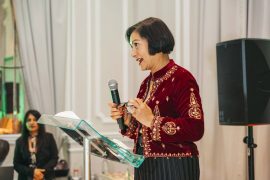By Aditi Maheshwari
It’s obvious; much of human behaviour is puzzling. Have you ever considered why we pay close attention to what one person says but not another? Why an employee will consistently carry out the instructions of one superior but only grudgingly do what another superior request? Why men are acknowledged and paid more for the same job done by a woman? Have you ever considered why this stereotype coupled with unconscious bias is so dominative in human psychology?
Despite the significant contributions made by women, these stereotypes still play out in the field of reality. There are entrenched and firm attitudes regarding women’s role in a male-dominated industry like aviation. We call this present era to be modern in approach, yet we find women treated differently – why aren’t there more female pilots and CEOs in the aviation industry?
Women have made vital contributions to the airline industry, they have showcased their strengths in times of war and uncertainties, yet we chose to treat them secondly. There’s a deep perception of falling into the triviality trap when a woman begins to push for a professional capacity.
The status quo needs to be challenged if we desire an equal opportunity for all irrespective of gender discrimination. Gender segmentation will always trounce humanity and growth. Equality should not only be preached in words but needs to be practised in reality to break the stereotypes in practice. Overlooking talent and hard work simply to satisfy a traditional blocked mindset regarding women’s role in society will only prove to be depleting the source of greatness.
However, some incredible ladies have set examples of challenging these sexist views and empowering other women in the process. Sharing the highlights of women power especially in the world of flights and reaching out past infinity.
Chinyere Kalu, the first Nigerian female commercial pilot and the first woman to fly an aircraft in Nigeria also served as the rector and chief instructor of the Nigerian College of Aviation Technology between Oct. 2011 and Feb. 2014. She battled language disorientation, faced victimization being a female lead in the male-dominated work-space. She was kept on hold for long periods without any salary to her account. From the dunghill to a pilot, the ride had its own roller-coaster experiences. According to a great Pan-Africanist and Human Right Defender in Botswana, Bosa Sebele, “There is no force more powerful than a woman determined to rise.”
However, her determination, hope and resilience have earned her a special place in the aviation industry. Her credential includes, being a member of the Nigerian Women Achievers Hall of Fame and also a member of the Order of the Federal Republic of Nigeria (2006). Other awards include the African International Achievers Merit Award 2007, the Rare Gems Professional Achievements Awards 2007 and Nigeria’s 50 Greatest Women of Democratic Administration of Ghana 2012.
Another success story is of Lieutenant Ouma Laouali; the first female pilot to serve in Niger’s Armed Forces. Laouali was one of the members of the Nigerien air force to be trained as pilots in the United States, as part of a programme to help in fighting Boko Haram, the Islamist terrorist group active in the region.
While facing many challenges during her 2,600 flying hours as a combat-tested pilot; she proved to the world that women are capable of doing the same thing as men, by becoming the Nigerien air force Intelligence, Surveillance, and Reconnaissance Squadron Operational Detachment commander. Each time a woman stands up for herself, she knowingly or unknowingly sets high standards for other women and encourages other women to dream big and dare to fulfil those dreams too, because it’s possible to achieve your goals regardless of the circumstances.
Another remarkable feat by Laouali in her career took place on April 22, 2020, when she completed her training to become a C-130 Hercules pilot in the C-130 Formal Training Unit’s six-month international pilot training program.
Great determination leads to great success. Give yourself and others a chance to fly high.
Another great example is of Aluel Bol Aluenge (South Sudan 2018) South Sudan’s first commercial pilot who has risen to the position of Captain. Captain Aluenge flies with American airline company Delta Air Lines.
For girls like Aluenge, obstacles are merely redirections to something even better. Aluenge had tried to be a model when she was 16, both in New York and London. Her fashion ambition, however, didn’t work out. She was at the Florida Memorial University where she majored in international business management before switching to aeronautical science. In a year she got her commercial pilot’s license and then there was no stopping. What she birthed was a great spirit among young girls to aim higher and be flexible in your approach. She has set a new bar of high standards for women aviators.
Adeola Ogunmola Sowemimo (Nigeria 2019), the first female Nigerian to pilot the gigantic Boeing 787 Dreamliner at Qatar Airways and to fly the Boeing 767 Aircraft across the Atlantic. She joins the list of outstanding women in the aviation sector who flew the Boeing 787 Dreamliner, including Kenya’s Captain Irene Koki, Ethiopia’s Captain Amsale Gulau and a few other women.
Hailing from Ogbomoso, an ancient town in Oyo State and graduating from the Ladoke Akintola University, which is also based in the old city, she inspires people to stretch their limited mindsets and have a broader vision of what’s possible especially concerning women empowerment.
Refilwe Ledwaba is a great story for women empowerment, as she has not only led by example but has also made a way for other young women to fly high. She is the first black woman in South Africa to fly helicopters and also a fixed-wing pilot. In 2009, she also started a non-profit organization for young women in the SADC countries, Southern African Women in Aviation and Aerospace Industry (SAWIA) providing mentorship and guidance and making opportunities for young women by introducing the “Girl Fly Programme”. She dismantled legacy practices of gender inequality while providing an opening of equal opportunities to women with talent and drive. Being an advocate for women’s rights and a Bill and Melinda Gates Foundation goalkeeper, she proved that young girls can be aeronautical engineers, or air-traffic controllers, or successful pilots, etc. basically whatever they chose to be, they can be good at, provided we eliminate or overrule biases.
Rare is the woman who has been exposed to the intense heat of a pilot’s enthusiasm, without being in some way affected by it. The only reason that this is possible is unreasonable itself, that strange distant mystique of machines that carry men/women through the air. More than the passengers, though, it is the pilots who looked over the horizon and on the other side found that time was dead in its tracks. An experience beyond words.
Changing The Face of Aviation
Africa has made significant progress in ensuring women participation in aviation-related jobs, yet there are rooms for improvement in large numbers. Meaningful management echelons are still lacking in women participation – this has to be considered so that young women can begin to dream bigger. Women are the backbones of our society and so out casting them will only weaken the strength and flexibility needed to survive and thrive. It’s our obligation and moral responsibility to make the right changes in belief patterns that are sabotaging none other than ourselves at the core level. Abandoning credential candidates merely due to gender biases is a reflection of an impotent society. Our power lies in acknowledging and promoting greatness to build a healthy mindset and environment which helps in achieving parity and is just in its approaches and belief systems.
The best practice, however, when it comes to women in the aviation industry in Africa, is that they stand united when it comes to challenging the status quo when it comes to educating and helping young women enter the aviation world and have a firm ground to explore opportunities to fly high. This unity authorizes society by voicing matters that are being silently ignored. Demystifying the facts facilitate transformation. The more we are aware the better we can do. Being cynical will not help break the established barriers of ignorance and insecurities. Being a great example of change across all demographics. Inspiration comes in many ways but to make a difference requires that we stand in unity and also work for a cause greater than ourselves and one which fulfils a higher purpose.





Comments are closed.